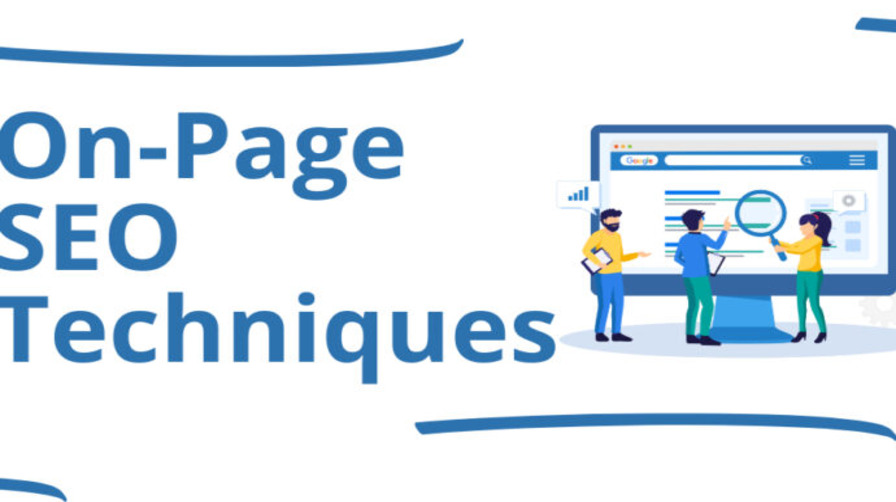Rocking the Rankings: Unleashing On-Page SEO Techniques for Local Triumph
If you’re on the quest to boost your website’s credibility on Google and other search engines, you gotta get down and dirty with on-page SEO techniques. We’re talking about pimping out your website’s content, structure, and all that good stuff. Let me walk you through the game plan in this article. On-page SEO is the key to leveling up your website’s ranking. The Intro Local SEO thrives on making sure that the search engines love to watch your website perform. Titles, meta tags, and headings set the stage for the main show, preparing the audience for things to come. You see, on-page SEO isn’t just a backstage pass for search engines; it secures a VIP ticket for users. It’s about crafting a user-friendly website, quickly delivering what users are looking for, turning clicks into conversions, and gaining traffic. Now, as you may have guessed, we’re at the on-page SEO Rock Concert, where keywords are the headliners across the press. Choose your search terms wisely, and scatter them like confetti. Titles and meta tags set the tone, but quality content steals the show, the rock anthem that captivates users with a touch of local SEO, so make it the best. Let’s get to the front row and take a closer look at the band members. Keyword Research Now, keyword research, it’s like finding the perfect playlist for your audience. Dive into those keyword research tools, stalk your website’s metrics, and sneak a peek at what tunes your competitors are jamming to. Remember, choose keywords that vibe with your website and biz, aim for high search volume but low competition, and keep it real, pick keywords you can rock. The longer-tail the keyword (more words), the easier it’ll be to rank. So, instead of “Hairdressers Lancashire” go for “Women’s Hairdressers in Preston Lancashire” – Thats if you have a women’s hair shop in Preston of course. Again, make sure it has some search volume and is relatively easy in competition. Naturally sprinkle those keywords in your title, and meta tags, and let them groove in your content, we’ll get to that in a sec. here’s a rock memory you might wanna keep, 88% of people who do a local search visit or call a store within 24 hours. Make sure your music is finely tuned for both brand and industry lingo – key for ruling the SERP game. 🚀 Content Optimisation Welcome to the stage, the Beyoncé of search engine-friendly material – your content. Keywords are the crown jewels, but don’t stop there, your content needs to be well-written, error-free, and a joy to read. The design and user experience? That’s the backup band. If your website’s a maze or a snoozefest, people will bounce back out the door. Content optimisation is your ticket to the top, attracting organic traffic and ruling the SERPs. Make sure it is valuable, helps solve the reader’s problem, and sings all the lyrics that your audience was looking for. Title Tags & Meta Descriptions Here comes the main event, title tags, and meta descriptions. These are your website’s fashion statement, and trust me, first impressions matter. The title tag is your website’s killer outfit, concise, descriptive, and packed nicely with your primary keyword (and i said nicely, not stuffed). The meta description? It’s the teaser that reels in the crowd, concise and armed with the same phrases. Get these two right, and you’ve got the crowd crying for more. Curious for more insights? Dive into this article by Exposure Ninja, where they guide you through the art of crafting title tags and meta descriptions tailored specifically for SEO. URLs & Canonicalisation Let’s not forget URLs, they’re the VIP pass for search engines. A well-optimised URL speaks volumes, telling search engines your page’s story. Now, canonicalisation is the bouncer, it ensures there’s only one version of your URL. No multiple personalities confusing the search engine audience, just a smooth, singular path to your website’s greatness. Optimise Your Images Picture this; your images stealing the spotlight. Optimise those snapshots with the right file format, JPEG is the rockstar here. Use keyword-rich file names, and check the size, nobody likes a slow-loading webpage. Your images are the album cover, make ’em pop, and watch your website climb the charts in image search results. If you’re looking for a plugin to help amplify your efforts, try Smush, a WordPress plugin that will help you make your images load faster. Link Building & Anchor Text Link building is like getting shoutouts from the pop stars. Score high-quality links from authority sites, and you’re in the SEO VIP lounge. Your anchor text is your calling card, make it relevant, make it sing. It’s the secret to tell search engines what’s up and boost your ranking for those keywords. If you’re aiming for the Google throne, here’s a nugget of wisdom: the top dog on Google’s ranking hill boasts an average of 3.8 times more backlinks than the pages straggling behind in positions 2 through 10. So, when it comes to backlinks, it’s not just about being good; it’s about being way ahead of the pack, so make sure they’re from a reputable, related source 🚀🔗 Optimise Your Website for Mobile Searchers Mobile users rule the internet kingdom, and Google’s their king. Optimise for mobile, or you’re missing the royal party. Big text sizes, and responsive design, think of it as your website’s mobile makeover. Keep those paragraphs short and snappy, ’cause mobile users have no time for an epic novel. Use Social Media to Promote Your Website Time to get social, it’s like shouting your website’s name from the rooftops. Share your content, engage with your audience, and throw in some ads for good measure. Social media is your megaphone, helping you reach a bigger crowd and drive traffic like a rockstar. In the year 2021, a whopping 91% of small businesses hopped on the social media bandwagon, marking a notable surge from the 86% recorded in 2020. Among the small



